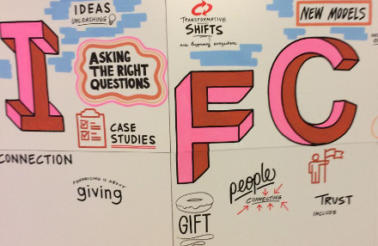Hugh Radojev reflects on the first day of the International Fundraising Congress.
The International Fundraising Congress for 2016 is underway in the bustling heart of Noordwijk in the Netherlands. The best part of 1,000 fundraisers and suppliers from all across the UK, Europe and the rest of the world have gathered in a single hotel in the middle of a field to innovate, inspire, imbibe and… commiserate.
The last 12 months, much like the 12 that came before, have been tough ones for the collective fundraising profession. However, as opposed to this time last year - where the events of the summer of 2015 were still so raw, so fresh and painful as to leave most of the delegates in a state of shock – IFC 2016 has seen a real change in the tone of the collective conversation.
As with the stages of grief, fundraisers have passed over into collective acceptance. Strangely, as UK fundraisers mix and mingle with their international brethren, there seems to be almost a sense of salve in the confirmation that the grass isn't necessarily greener elsewhere. Sure, fundraising is tough in the UK, but it’s tough everywhere - a crumb of comfort perhaps, albeit a cold one.
Interestingly, as with the recent NPC Ignites conference in London, the central (albeit unofficial) theme of this conference seems to be about changing the notion and idea of what a charity is in modern society.
Yesterday Joe Jenkins from the Children’s Society and Tracey Pritchard from Friends of the Earth used their session on impact measurement and reporting to, essentially, advocate for the traditional, intermediary model of charity to be ripped up. It’s no longer fit for purpose to tackle the kinds of issues that modern society is facing.
The talk around dinner quickly turned to the topic too. “Changing demographics in society mean that we as charities need to change too,” a major gifts fundraiser from the RSPB said over the salmon. “Millennials want to be more involved in the process and we’ve been too slow to realise that”.
Indeed, but what can be done to change that? Just about every one of the delegates here would say something similar – that something, maybe even everything, needs to change – but actual concrete answers remain hard to find.
Still, having these conversations is the first step and its encouraging fundraisers are having them – both within the sessions and outside of them. The events of the last year or so are receding from the forefront of the discussions, but they’ve clearly left an indelible mark on fundraising’s psyche.
The mistakes and travails of the last year or so have been accepted. Fundraisers are looking to the future, and if this IFC is anything to go by, the future may look very different indeed.








